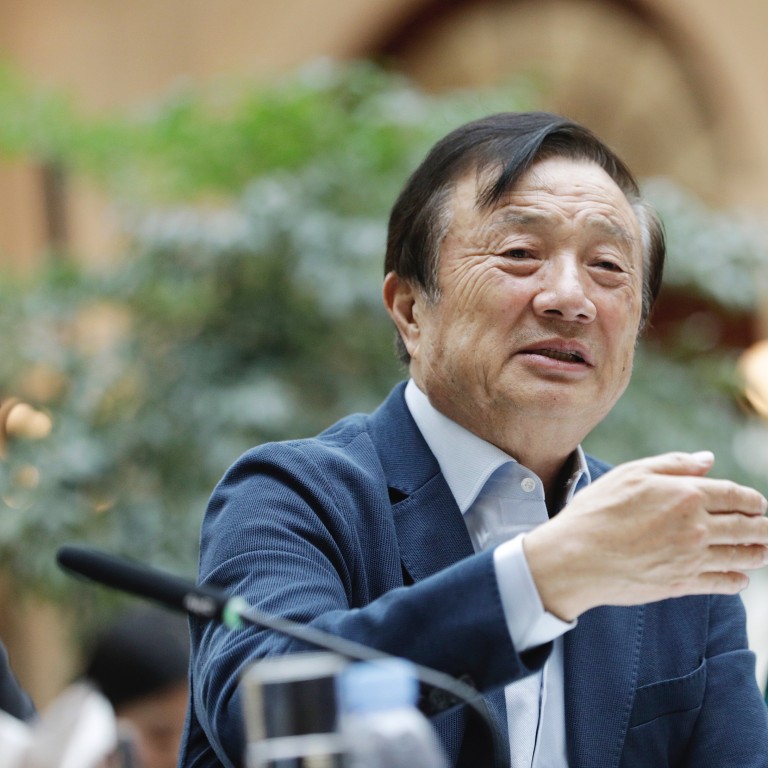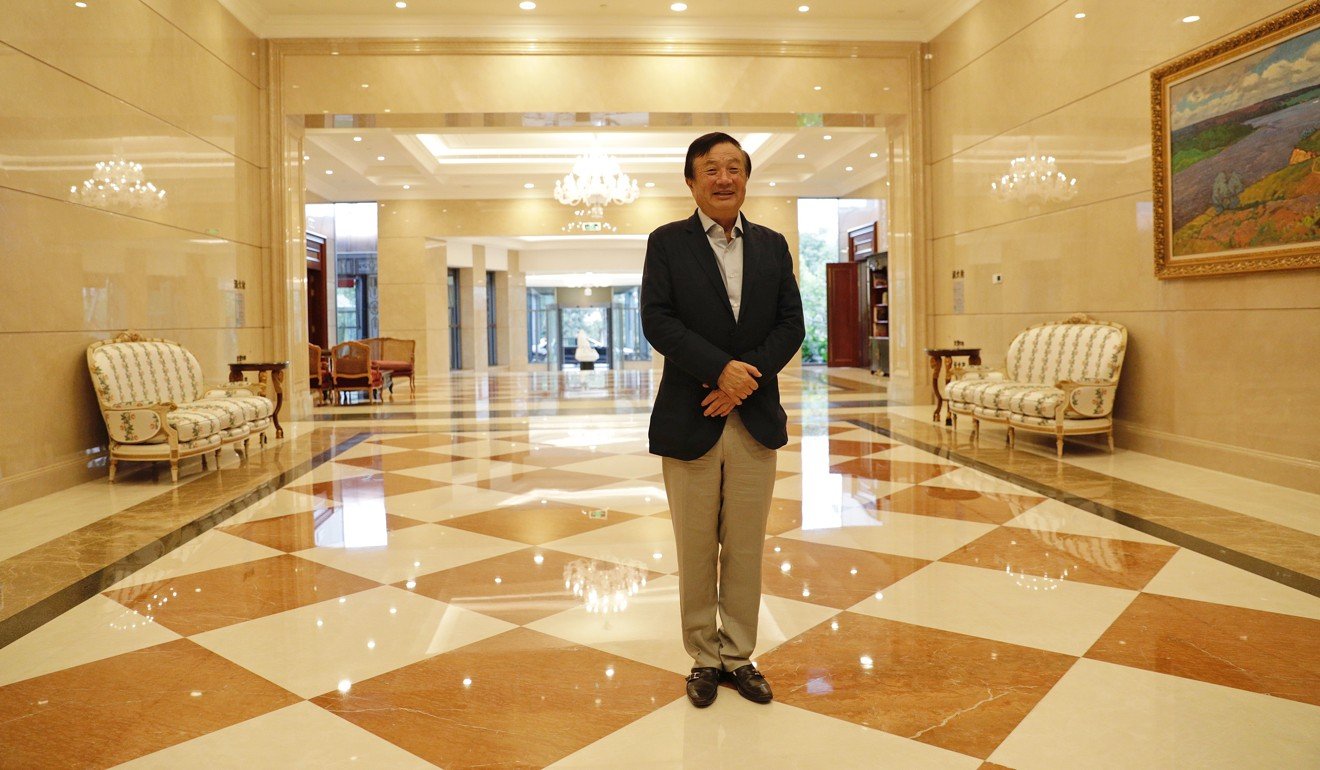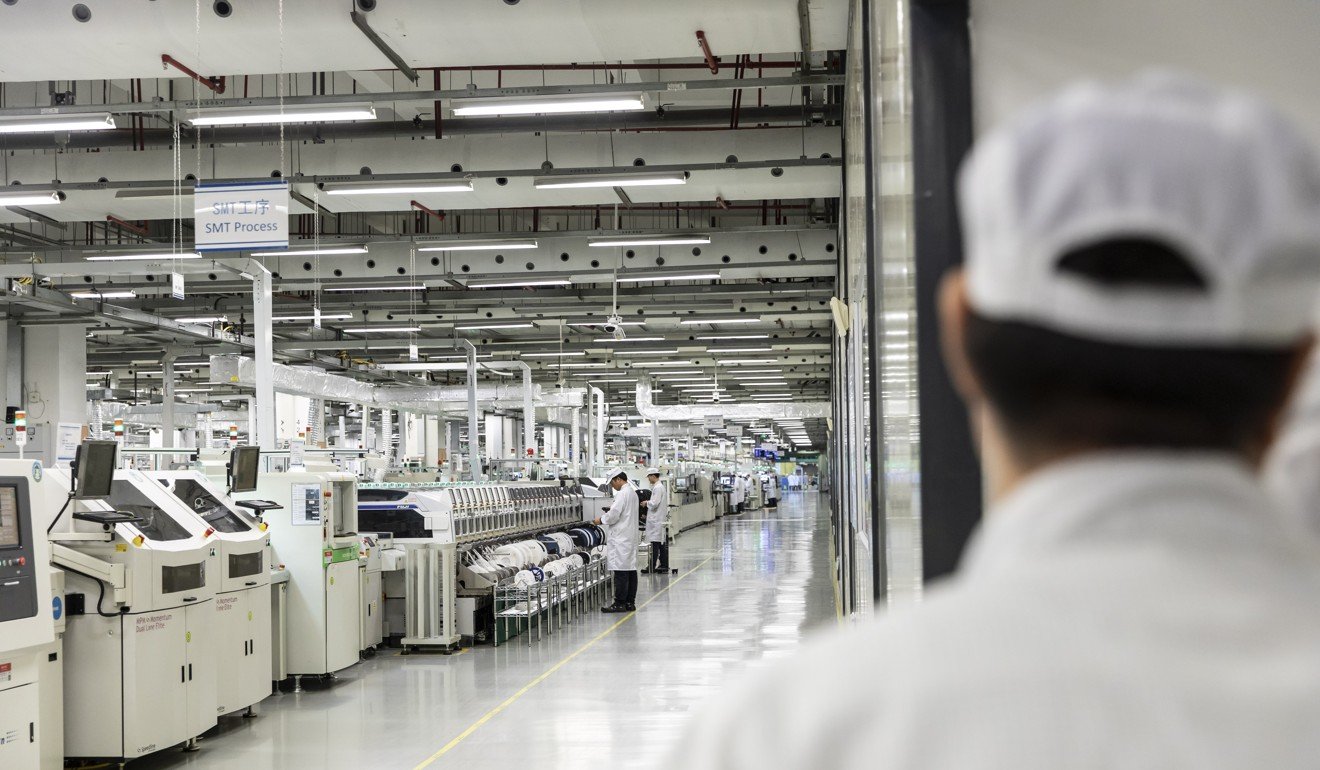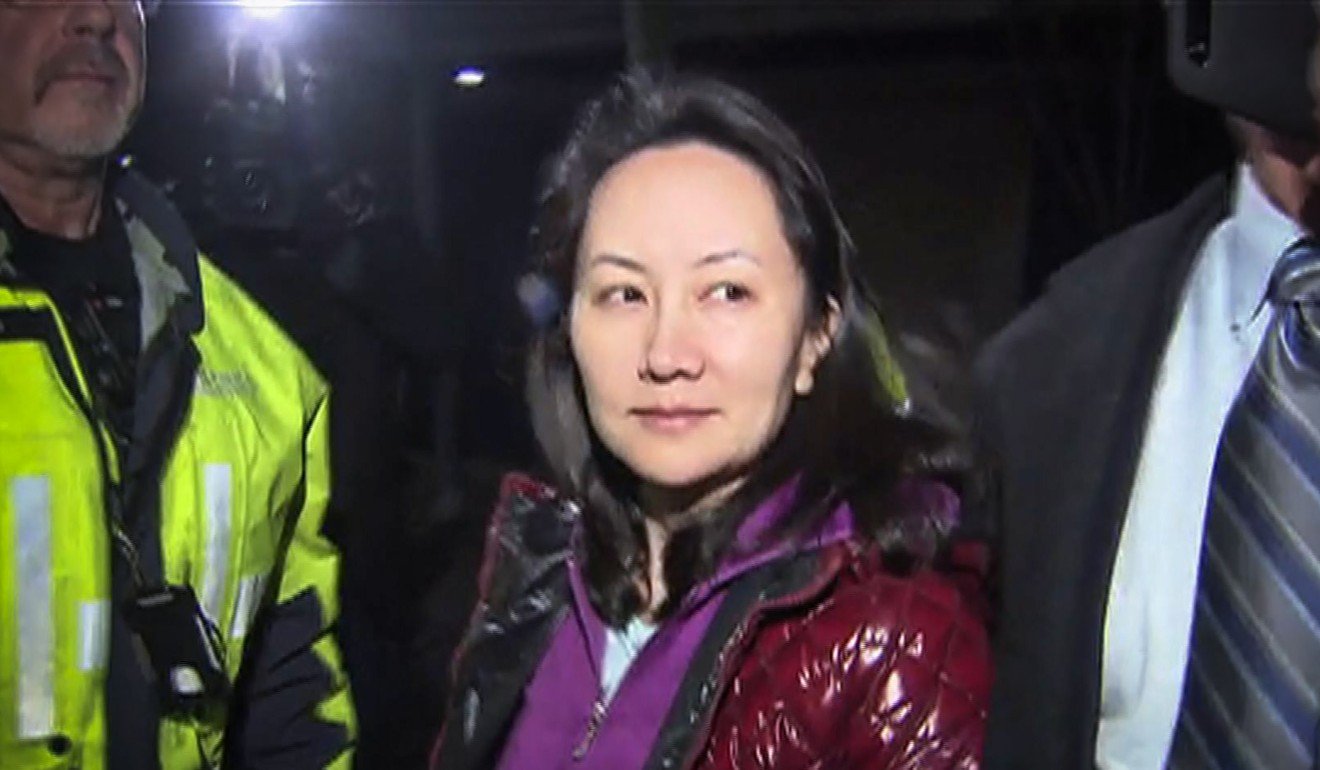
Huawei founder Ren Zhengfei on why he joined China’s Communist Party and the People’s Liberation Army
- Ren speaks of his time in the military and how he came to join the Chinese Communist Party
Before Huawei became the telecoms equipment giant that it is today, its founder Ren Zhengfei was part of an army crew sent to China’s frigid northeast. The mission: build a synthetic fibre factory so that every Chinese person had new clothes to wear.
“I joined the military during China’s Cultural Revolution. At that time, there was chaos almost everywhere, including in agriculture and the industry,” Ren, 74, told reporters at Huawei’s headquarters in Shenzhen this week. “The country was facing very difficult times. These difficulties were reflected in people’s diets and clothing.”
Back then, every Chinese person was allotted one-third of a metre of cloth, which was enough only to patch holes, he said, according to a transcript of his comments provided by Huawei. “So I never wore clothes without patches when I was young.”
Transcript: Read the media Q&A with Huawei founder Ren Zhengfei
This picture of poverty painted by Ren, who grew up in a mountainous town in China’s poorest province, Guizhou, provides a stark contrast to the image of a strong and prosperous China that is being projected today, one of a nation that has landed a lunar probe on the far side of the moon and is competing with the US in advanced technologies from quantum computing to 5G telecommunications.
It also provides a glimpse into Ren’s motivation for joining the engineering corps of the People’s Liberation Army and later, the ruling Chinese Communist Party.
Ren, the son of schoolteachers and a survivor of China’s great famine between 1958 and 1961, said that while he supports the Communist Party, he will “never do anything to harm any other nation.”
He also said he does not see close connections between his personal political beliefs and Huawei’s actions as a business. Huawei will “certainly say no” to any request from China’s government to access data or create back doors to the networks, he said, adding that “we would rather shut Huawei down than do anything that would damage the interests of our customers to seek our own gains.”
Indeed, Ren may not have become a member of the Chinese Communist Party if not for a twist of fate.
He was unable to join the Party earlier, at a time when membership was required “even to become the head of a cooking team,” because his father was labelled a “capitalist roader” during the Cultural Revolution. That family connection ruled him out of membership.
Ren eventually joined the Party in 1978 with the help of his supervisor and Party organisations after his selection to the National Science Conference for inventing a crucial tool used for testing advanced equipment at the synthetic fibre factory.
By then, China was eager to promote feats of science and technology and undo the damage done by a decade of anti-intellectualism.

He became the deputy director of a small construction research institute with an equivalent rank of deputy regimental chief before being demobilised in 1983 when the government disbanded the entire engineering corps.
Ren established Huawei with a capital of 21,000 yuan in 1987. He expects annual revenue for the privately-held company to be around US$125 billion this year.
Asked how his experience in the military has shaped his management style with Huawei, Ren spoke of the harsh conditions that he and his compatriots had to endure in Liaoyang, a city located along the Taizi River, where temperatures can plunge to below minus-20 degrees Celsius.
In the beginning, “everyone slept on the grass” as there was no housing, and even when accommodation was later built, it was so shabby that it provided little shelter from the wind and rain, he said.
The monthly ration for cooking oil was only 150 grams for the average person in northeast China, and pickled cabbages and radishes were the menu for six months of the year, plus sorghum.
At the same time, the synthetic fibre factory provided Ren with his first glimpse of what the world’s most advanced technology looked like, as the French company providing the equipment had a high level of automated controls that no Chinese companies had.

“We learned to endure hardship,” Ren said. “We learned from the world’s most advanced technology while living a life that could be seen as primitive.”
Today, Huawei is known in Chinese business circles for its “wolf culture” for being fearless and aggressive. Workers have also been known to pass out on office mattresses from exhaustion.
Ren cited examples of how Huawei employees risked their lives to restore 680 base stations within two weeks in the affected areas of the Fukushima nuclear-plant meltdown in Japan in 2011.
Many Huawei staff have contracted malaria in disease-stricken countries while doing their jobs.
Meng Wanzhou, his eldest daughter and the company’s chief financial officer, was one of two passengers on a plane from Hong Kong to Japan at the time of the Fukushima disaster, he said.

She currently remains out on bail in Canada while awaiting the outcome of an extradition request by the US.
American authorities have accused her of fraudulently representing Huawei to evade US sanctions on Iran. She has denied any wrongdoing and said that she will contest the allegations if surrendered to the US.

